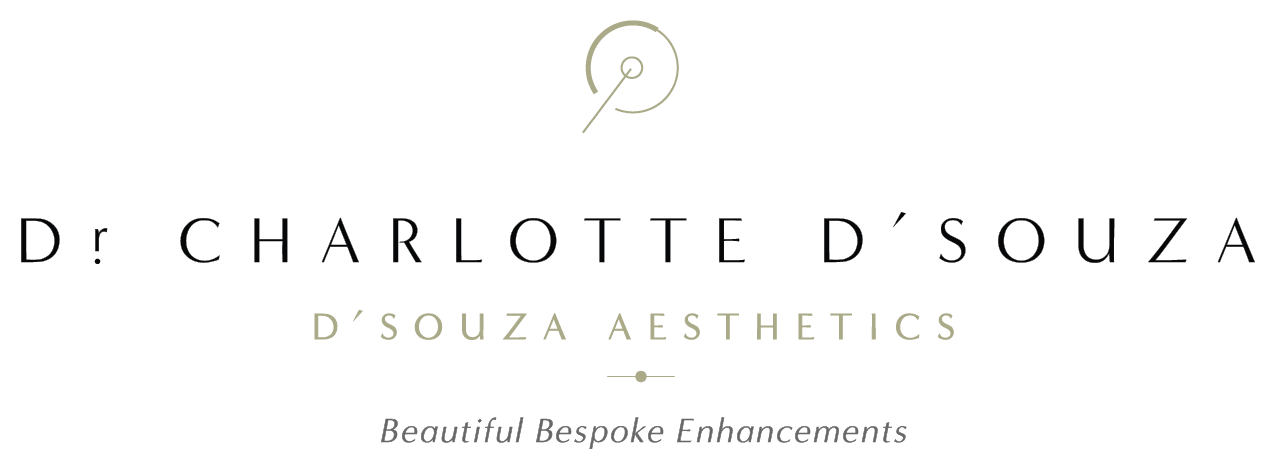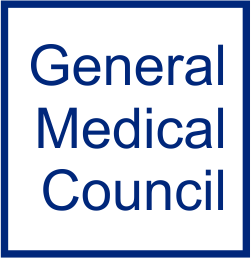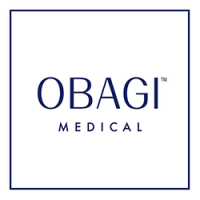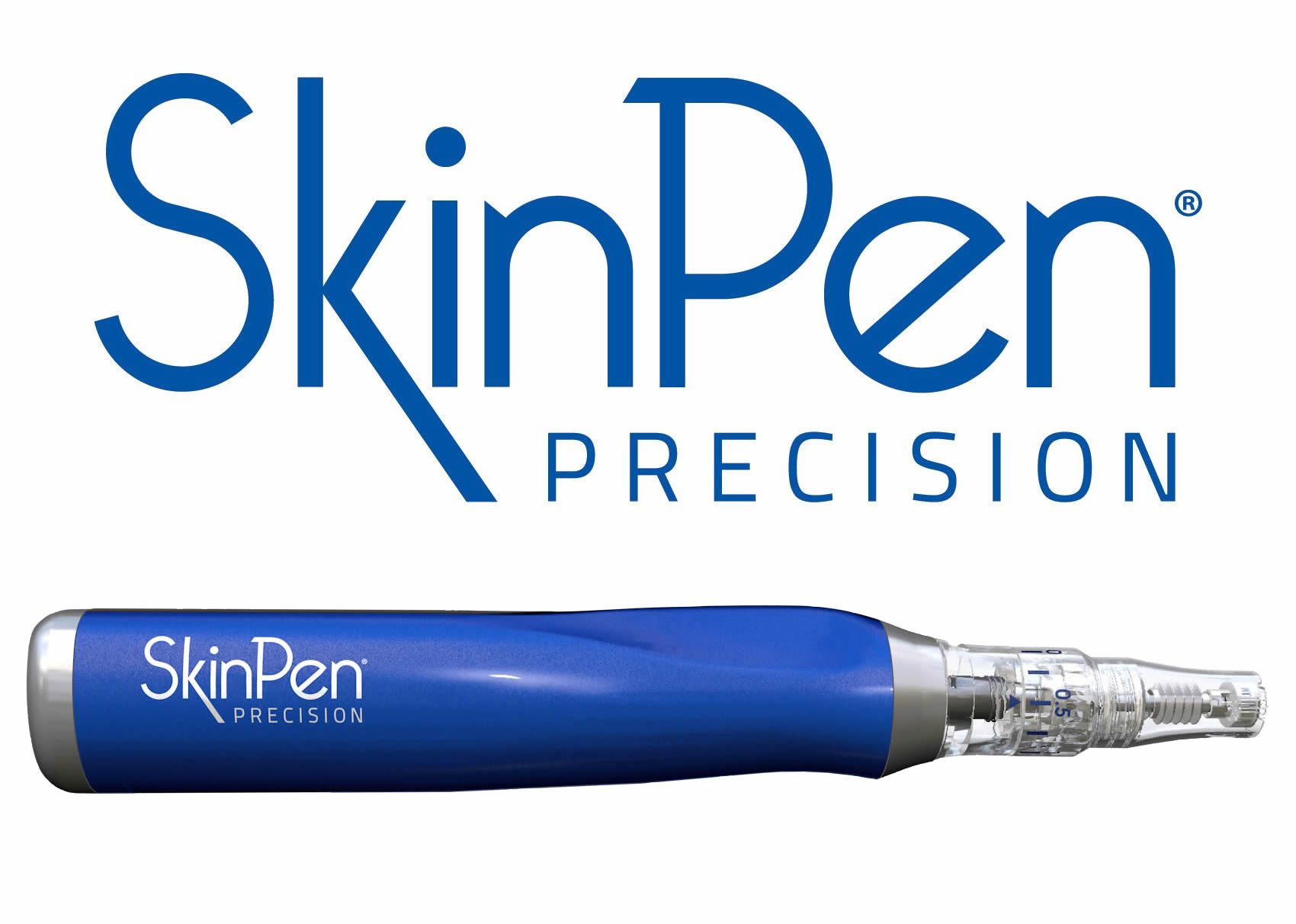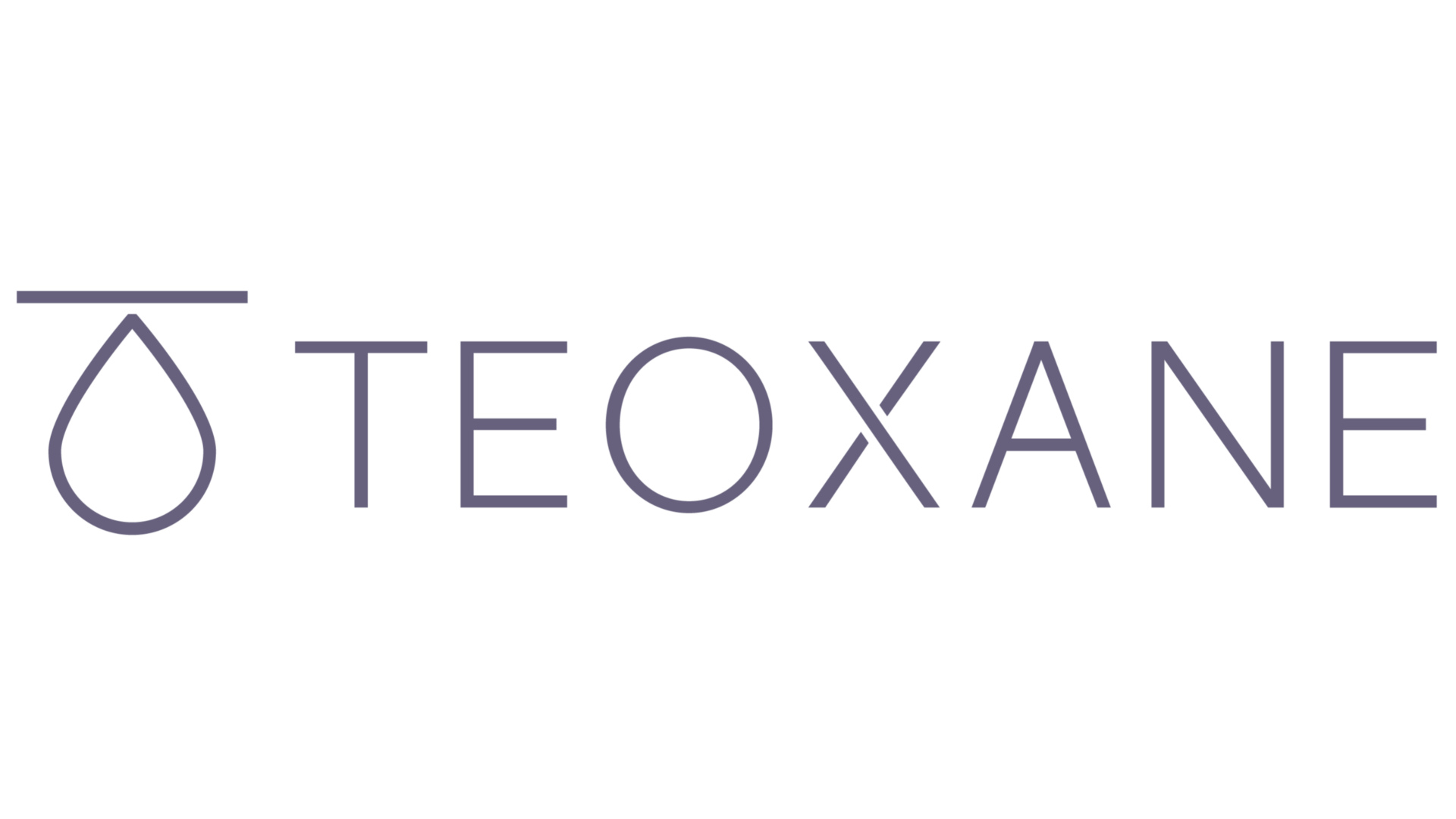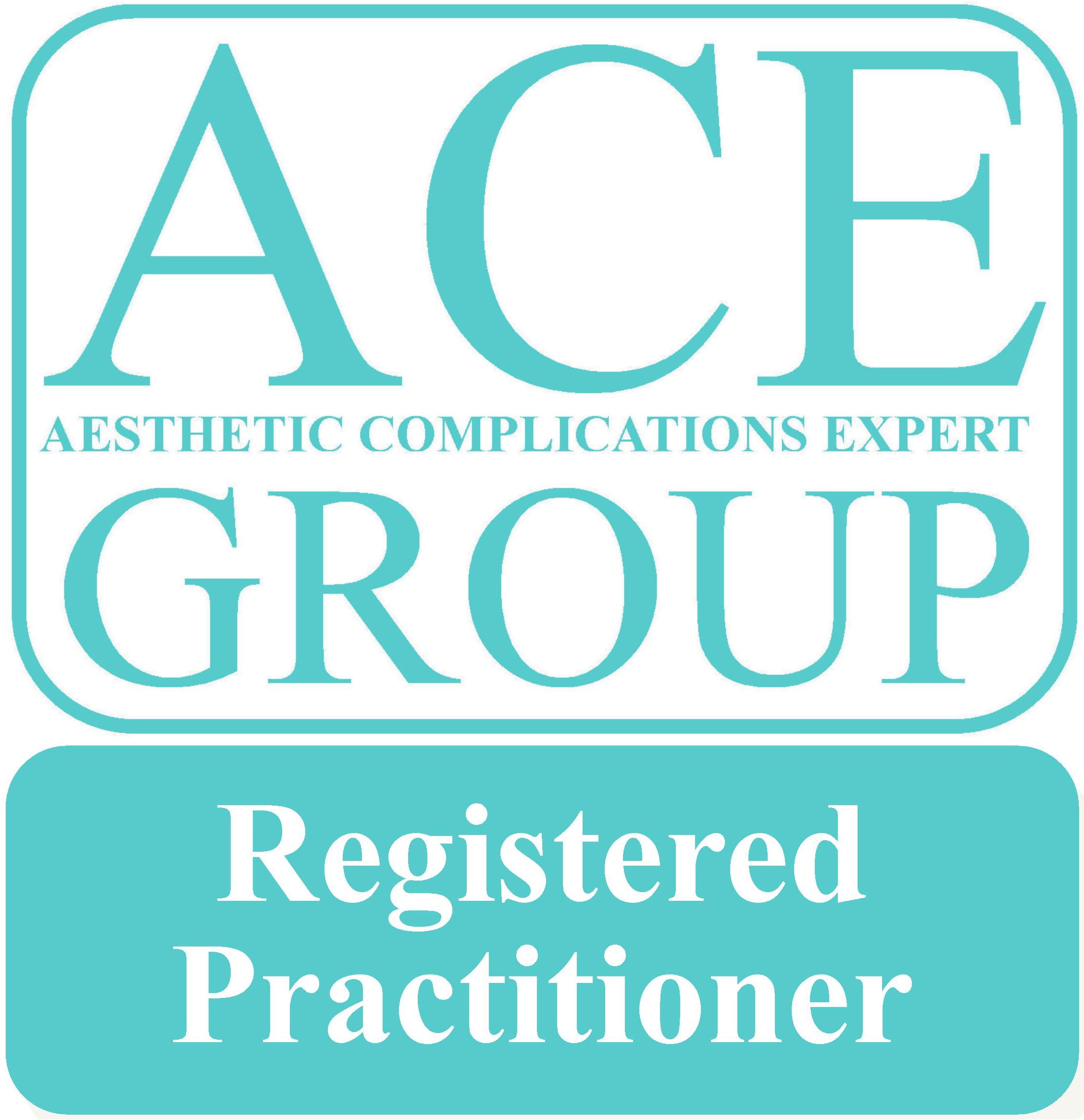If your usually radiant, blemish-free skin is breaking out in small pimples and seems to have a permanent rosy shade, you may be suffering from rosacea.
Rosacea is a chronic, stubborn skin condition that causes flare-ups and redness mostly on the face, although it can also affect other areas of skin. Unlike other skin conditions, rosacea has no permanent cure, so the best way to combat it is by managing the symptoms — being aware of internal and external factors that can trigger and/or exacerbate it, and following the right skincare protocol.
Rosacea is much more common than you think, affecting one in 10 people in the UK alone. Although rosacea is seen mostly in women, it can also affect men, who tend to have more severe symptoms.
This pesky skin condition typically crops up in your thirties, playing havoc with your trusted skincare regime and forcing you to make some significant adjustments to your lifestyle and diet.
Early signs of rosacea include flushing, hyper-reactivity and persistent rosy, warm cheeks. As the condition progresses, you may also experience pimples and pustules, inflamed blood vessels and facial swelling, as well as a burning or stinging sensation after applying certain products.
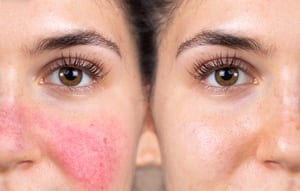
There are four types of rosacea, which tend to overlap:
- Erythematotelangiectatic rosacea appears as redness and flushing, with visible blood vessels.
- Papulopustular rosacea is characterised by redness, swelling, and breakouts that resemble acne.
- Phymatous rosacea causes the skin to thicken and take on a bumpy texture.
- Ocular rosacea involves redness, irritation in the eyes and swollen eyelids.
What triggers rosacea?
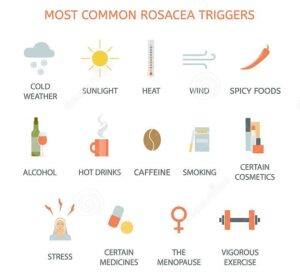
Rosacea is described as an inflammatory disorder, which means it’s aggravated by things that irritate the skin. The exact cause of rosacea is not fully understood, and vary from person to person. Activities that lead to increased circulation can trigger rosacea. This includes physical activities which raise the heart rate or cause you to lose your breath, such as running or cycling.
Rosacea can be also stimulated by sun exposure, alcohol, spicy food, weather factors such as cold, wind, heat, and emotionally stressful situations.
Studies also suggest that having a family member with rosacea may make you more prone to developing the condition.
Rosacea has been linked to reactions to tiny mites that live on your skin, or to bacteria in your gut. These bacteria line your entire digestive system, but most live in your intestines and colon. They help process food and affect everything from your metabolism to your mood and your immune system. A diet rich in alcohol, caffeine, sugar, processed and fried foods, white flour, other refined carbs, and corn or cooking oils can lead to the overgrowth of intestinal bacteria that contribute to rosacea.
The frequent use of ‘more-aggressive’ skincare products which contain AHAs, exfoliants or strongly scented products (whether natural or synthetic) that are harsh on your skin, may result in you developing this skin condition. They can cause damage to your natural skin barrier which allow irritants to enter the skin, causing inflammation. Free radical damage can also play a part in intensifying inflammation.
How can you manage rosacea?
As rosacea is a long-term, relapsing condition, it has to be managed rather than cured. If you find yourself affected by rosacea, you should put in place measurements that help you control it on a day-to-day basis and prevent it from worsening.
Firstly, you should look at your lifestyle and diet and make the necessary adjustments to alleviate the symptoms. These may include:
- Introducing an anti-inflammatory diet, rich in fatty fish, colourful fruits and vegetables, chia seeds, olive oil, purslane, mushrooms, sweet potatoes, cottage cheese, avocados, and almonds.
- Lessening the amount of intensive exercise you practise as this can exacerbate the condition. Instead opt for low-heart-rate exercise options such as yoga, pilates, barre or water aerobics, as water is cooling and calming and it offers natural resistance. However, be mindful of chlorine and pool additives that may affect sensitive skin as this may also accentuate the condition. Remember that many classes are running online during Covid times, so there are plenty of opportunities to sign up and start practicing!
When it comes to your skincare routine, the most important thing you can do for your skin is using perfume-free, calming, hydrating and protecting products that are gentle to skin. This promotes the strength of your skin barrier, safeguarding your skin from damaging aggressors.
As a doctor and authorised physician of Obagi skincare, I always look for products that are scientifically-backed and significantly improve the health, quality, and condition of skin. That’s why I love Obagi’s Rosacea kit to help prevent rosacea from worsening and manage its symptoms.
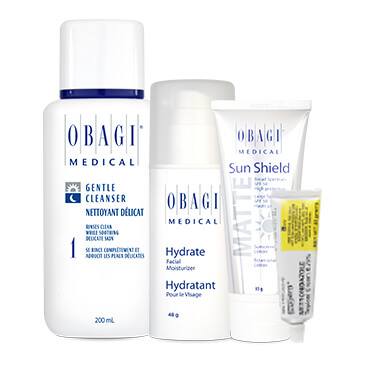
It contains:
- Sun Shield Matte Broad Spectrum SPF 50
- This is Obagi’s holy grail for sun protection. As sun exposure has been identified as a key trigger of rosacea, using a sun block of at least SPF 30 is essential to maintain the health of skin and keep redness and flare-ups at bay. Its non-greasy, PABA and fragrance-free formula defends your skin from UVA and UVB damaging rays, while giving your skin a matt finish. If you spend a great deal of time outdoors, make sure you reapply it frequently to maximise protection.
- NuDerm gentle cleanser
- Specifically formulated for sensitive skin, this non-scrub cleanser gently removes makeup and helps eliminate oil, dirt and other debris for a clean, fresh complexion. It is the perfect cleanser for skin affected with rosacea, effective but not aggressive!
- Hydrate moisturiser
- The perfect feed for your skin after being cleansed, the Obagi Hydrate moisturiser provides instant, long-lasting hydration. Its innovative formula is hypoallergenic, non-irritating and contains natural ingredients including avocado oil, shea butter and mango butter. It is also non-comedogenic which means it avoids blocking pores and the appearance of blackheads. It doesn’t leave a greasy shine behind either!
- 0.75% Metronidazole gel
- A type of antibiotic gel used to help decrease redness, inflammation, swelling and the number of pimples caused by rosacea. Metronidazole is a commonly prescribed antibiotic for rosacea, speak to your aesthetics doctor or GP to see if you are suitable to use this medication.
If you have rosacea or are concerned you may be developing this condition, get in touch here to book a free consultation. Prevention of early symptoms will make a huge difference in the long term. A video consultation is needed in order to prescribe Metronidazole, but other skincare products can be ordered directly from my online shop.
